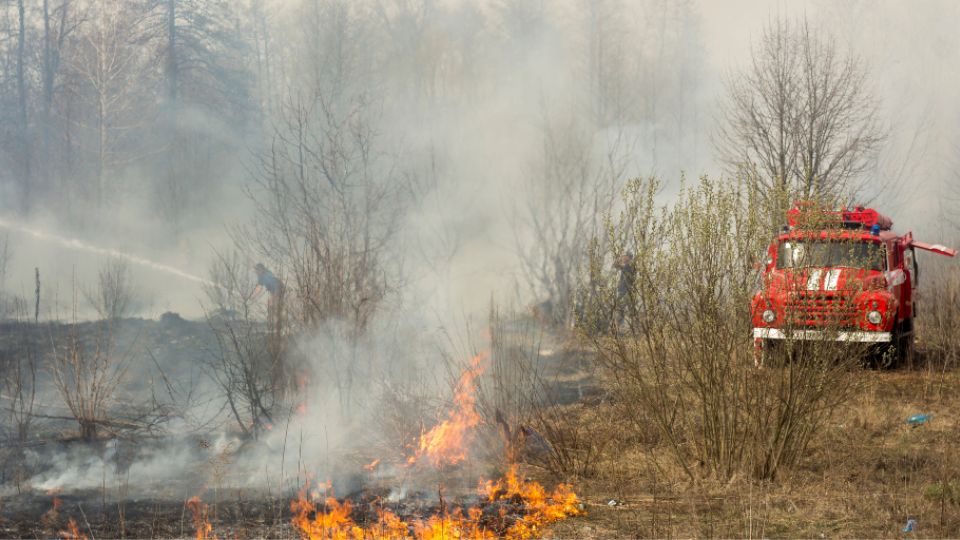The Pacific Northwest has long been susceptible to wildfires, especially in its arid regions. The threat is growing as climate change continues to impact our environment, leading to hotter and drier summers and diminished snowpack.
During the year 2023, a significant number of fires ravaged the states of Washington, Oregon, and Idaho. Smaller fires, although often overlooked, can have a devastating impact on agribusinesses located in vegetation-rich areas and rural regions with limited firefighting resources.
Wildfires pose a significant threat to agriculture, emphasizing the need for thorough preparation to mitigate their impact. In this guide, we will provide a comprehensive breakdown of the four essential steps that farmers and ranchers can implement to safeguard their businesses and homesteads.
Get Crop Fire Insurance
Growers can greatly benefit from crop fire insurance to mitigate potential losses. For those seeking crop insurance coverage for fire, the USDA provides a helpful resource to research insurance agents. Another option available is the Noninsured Crop Disaster Assistance Program (NAP).
Prepare Staff and Family
Being prepared is crucial for ensuring the safety of those around your operations in the event of an emergency.
- It is important to have an easily accessible Emergency Contact list for you and your staff.
- Implementing an alert system for your staff can be highly beneficial. Options such as a group text message, a website, a hotline, or a phone list can effectively disseminate important messages about fires and closures.
- Develop evacuation plans for every section of your operation. Ensure that the information is disseminated and that all employees are familiar with the necessary steps for evacuation.
- Ensure that your staff is well-trained in fire safety protocol and procedures.
Plan for Rescuing Livestock and Pets
Firefighters prioritize the rescue of human lives over animals. Ensuring the safety of your livestock, horses, and pets is your responsibility.
- It is important to ensure that hay remains dry to prevent any potential combustion.
- Make sure you have an ample supply of chicken crates for your poultry, ensuring they are easily accessible.
- Calculate the number of trailers or trips needed to safely transport your livestock. Connect with local farmers and volunteer networks to gain access to available trailers and trucks for transporting animals.
- Animals that roam freely can be guided and relocated away from the fire, preventing them from being affected by the burnt areas.
- Prepare separate evacuation kits for horses and pets, including details about their medications, diet, medical requirements, and identification. Creating a digital version that can be easily accessed by loved ones, acquaintances, or emergency personnel can be beneficial.
When faced with a difficult situation, it’s important to prioritize the safety of animals. Allowing them the opportunity to escape and find shelter is far more beneficial than confining them in a barn or pen. Chubb suggests utilizing various tools such as a livestock crayon, clippers, or temporary ID tags to ensure easy identification of animals in the future.
Also Read: Here is the Optimal Setting for Your Thermostat in the Summer, According to Utilities
Make Your Farm Fire-resilient and Accessible for Firefighters
Preventive measures can be implemented to minimize the potential damage caused by fires and facilitate the efforts of emergency crews on your property. Important reminder: firefighters prioritize the protection of homes over barns.
- It is important to gather all of your important documents and store them in a fire safe. In the event of a fire, it is important to prioritize your safety over any material possessions. Emphasize the importance of prioritizing human lives over material possessions.
- Assembling emergency kits is crucial for preparedness. These kits should include essential items such as medical supplies, non-perishable foods, water, a radio, flashlights, batteries, masks, and whistles.
- Stay informed about the locations of evacuation sites, which are typically set up at fairgrounds and other open venues.
- Establishing buffer zones around structures is crucial to minimize the risk of fire. These zones should be free from any vegetation or flammable materials. It is recommended to have a distance of 30 feet.
- Ensure that your driveway and roads are clear and properly marked to assist firefighters.
- Providing weight limits on bridges and indicating alternate routes for emergency vehicles can greatly assist them in navigating your property.
- Introducing a comprehensive kit designed specifically for emergency responders. This essential package includes spare gate keys, lock combinations, and property maps, ensuring quick and efficient access to critical locations.
- Remain vigilant and stay informed about the latest weather updates. Stay informed and be prepared by subscribing to email or phone alerts, ensuring you are aware of any potential fire threats in advance.
- Ensure the safe storage of chemicals and gases, such as propane, by keeping them in a secure area that is separate from barns, crops, and other vital structures.
- It is important to dedicate some time to researching government resources regarding wildfire preparation and response. This will help you understand the necessary steps to take in the event of a fire.


Leave a Reply